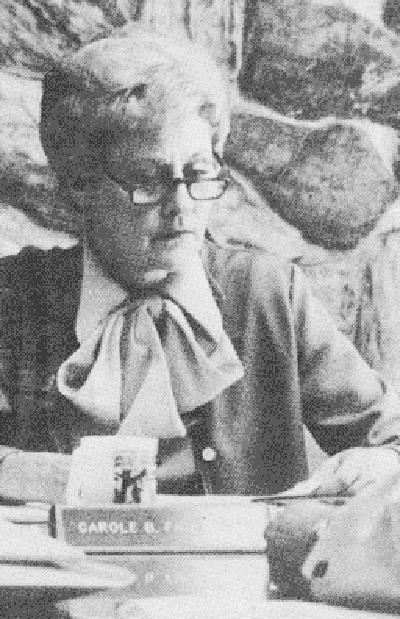Women's History Month: Carole Friedrich becomes NID's first female director in 1978

"Maybe I was a little ahead of my time," mused Carole Friedrich, who, in 1978, was the first woman elected to the Nevada Irrigation District Board of Directors. She made headlines earlier when she became the first woman to serve on the Nevada City Council in 1964 and then on the Local Agency Formation Commission (LAFCO).
In an interview by the Western Slopes Connection Newspaper just after she was sworn in to the NID Board, Friedrich observed that women have a great deal to contribute to politics because they are trained to care about people. "I think we see the solutions to problems in a different manner than men-we bring a different side to issues, and that's good."
“Curiosity and uninhibited questioning is another strength women bring to public service. I ask a million questions, and that's very important. Men seem to be afraid to ask for fear they'll look stupid. Women don't have that problem.''
Friedrich served on the NID Board from 1978-1985 as director of Division 1, which covered Nevada City, Cascade Shores, Gold Flat and Union Hill.

Notably, she was Boad President during the construction of the Rollins power plant, which was built as a second phase to the Yuba-Bear Hydroelectric Project, funded with a $65 million bond in the early 1960s.
The Union Newspaper ran a story on Aug. 17, 1981 about the “11-megawatt power plant that stands today beneath Rollins reservoir. Rollins power plant is designed to produce an estimated 70-million kilowatt hours of electricity per year, enough to meet the needs of about 7,000 homes. To generate an equivalent of power using oil, officials calculate, would consume 90,000 barrels of oil per year.”
Friedrich dedicated the powerplant on NID’s 60th anniversary as a memorial to Albert Scurr, district manager who died in January 1978.
She addressed the women's movement in the 1978 Western Slopes Connection article: "... [Friedrich] admits that without a supportive husband and adequate daycare for her child, when he was young, she would not have been able to maintain her high level of involvement in the community.

'The good thing about the women's movement is that it's given women more choices. But it's hard for me to identify with it because I've always been able to do what I wanted. I'm certainly not a downtrodden little woman. The movement is necessary, it's necessary-I didn't have a women's movement when I was trying to do these things.' ... 'I was socialized differently than most women,' she concedes. 'I love to get into good conversations with people who are aware of and interested in the county's problems. I mean, how much time can you spend talking about recipes?'"

